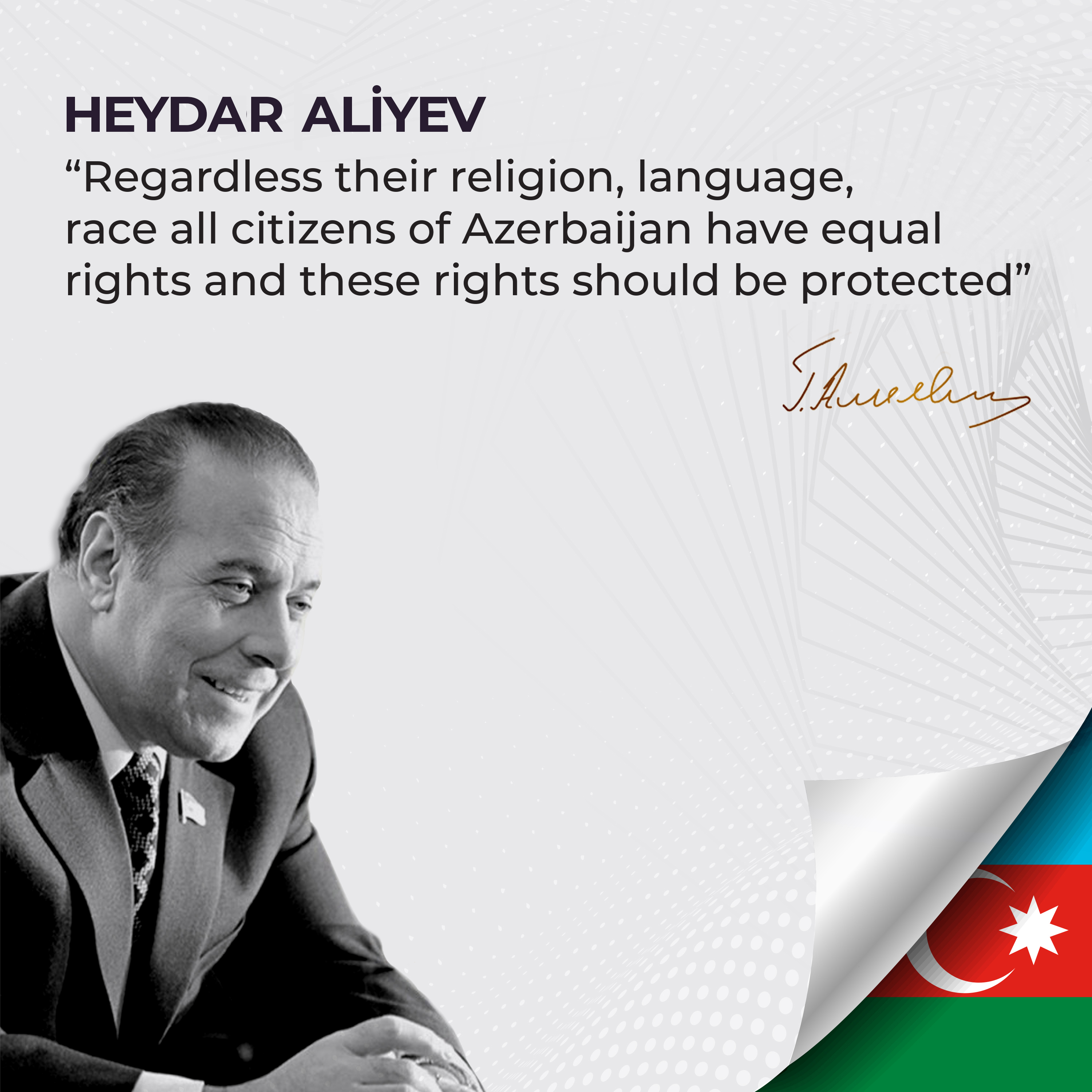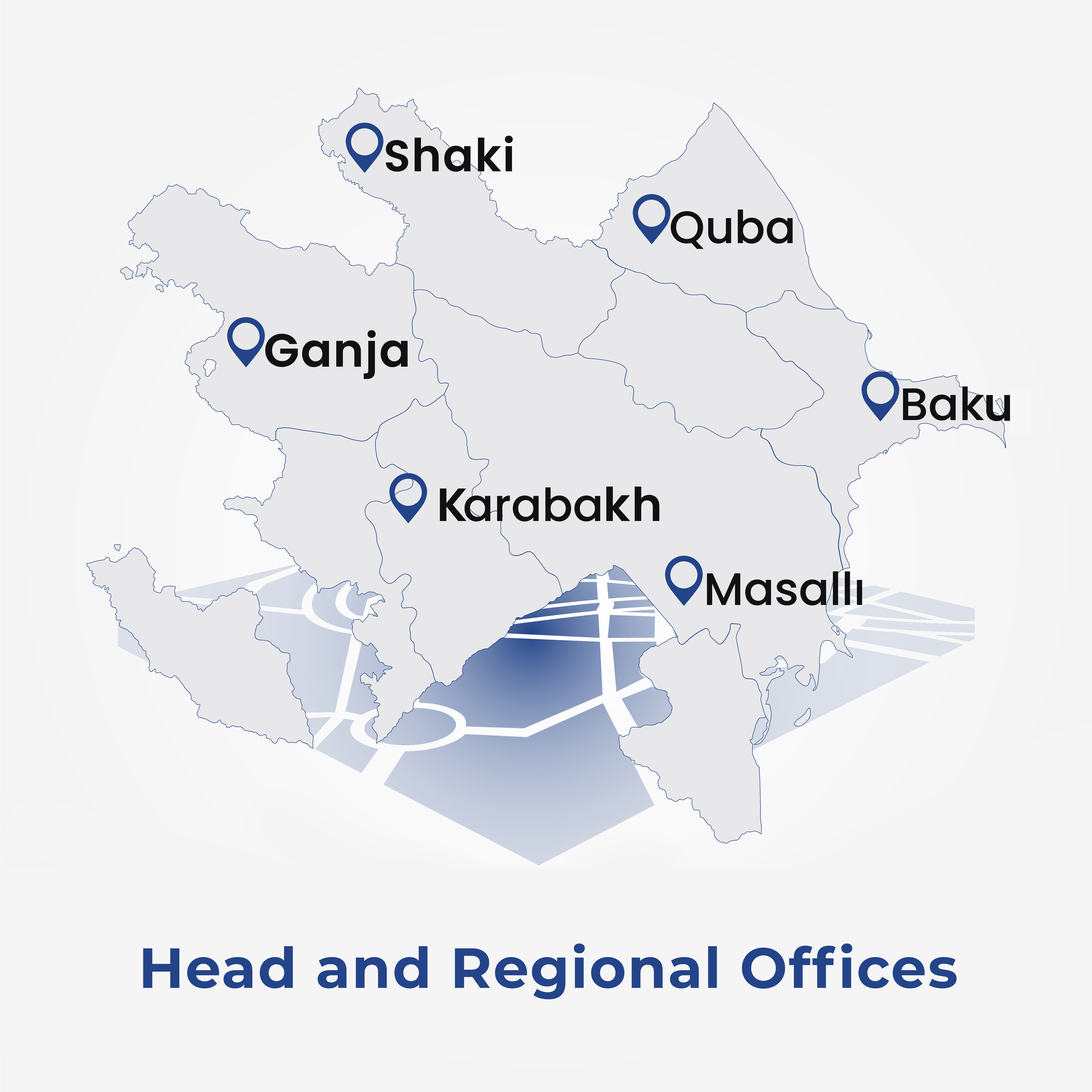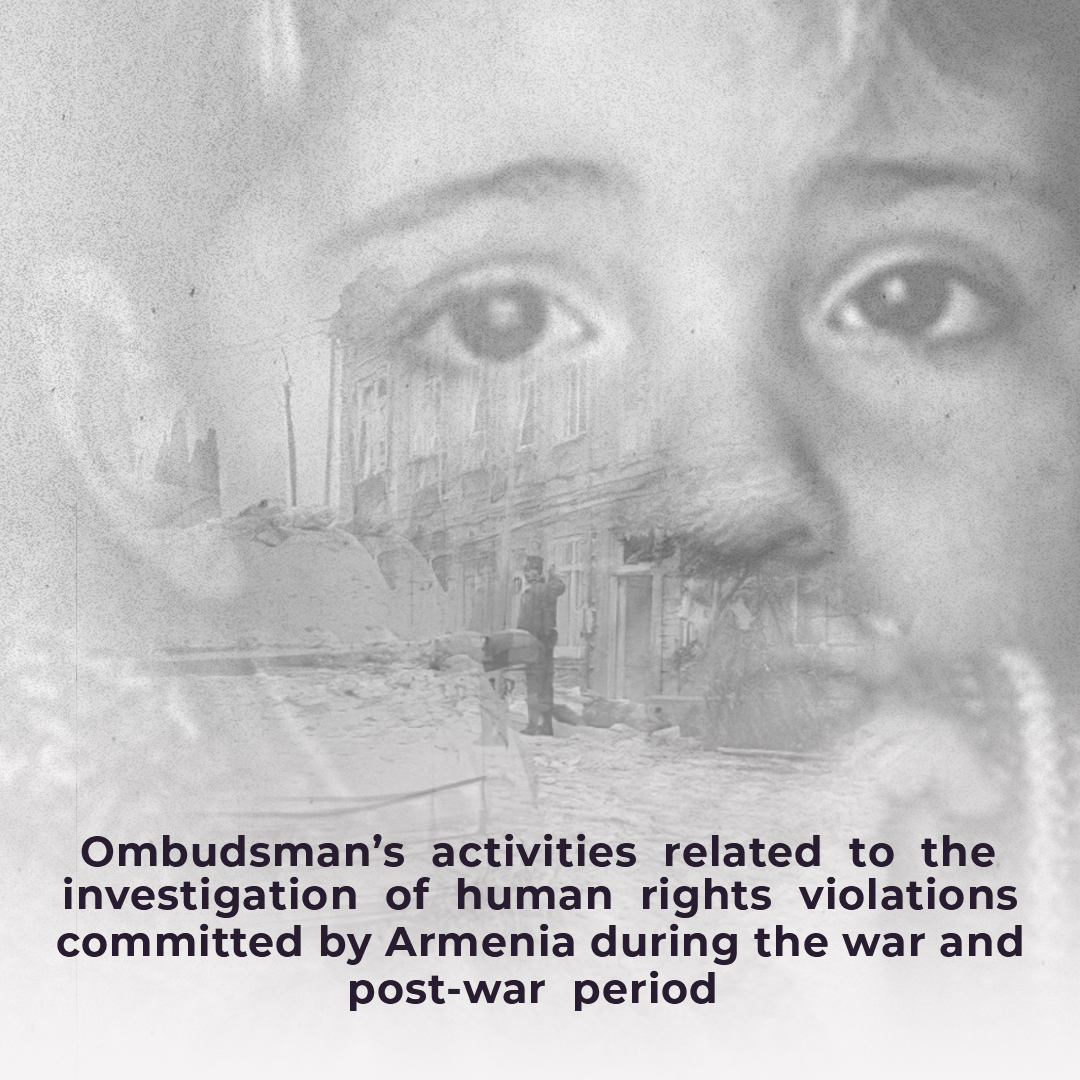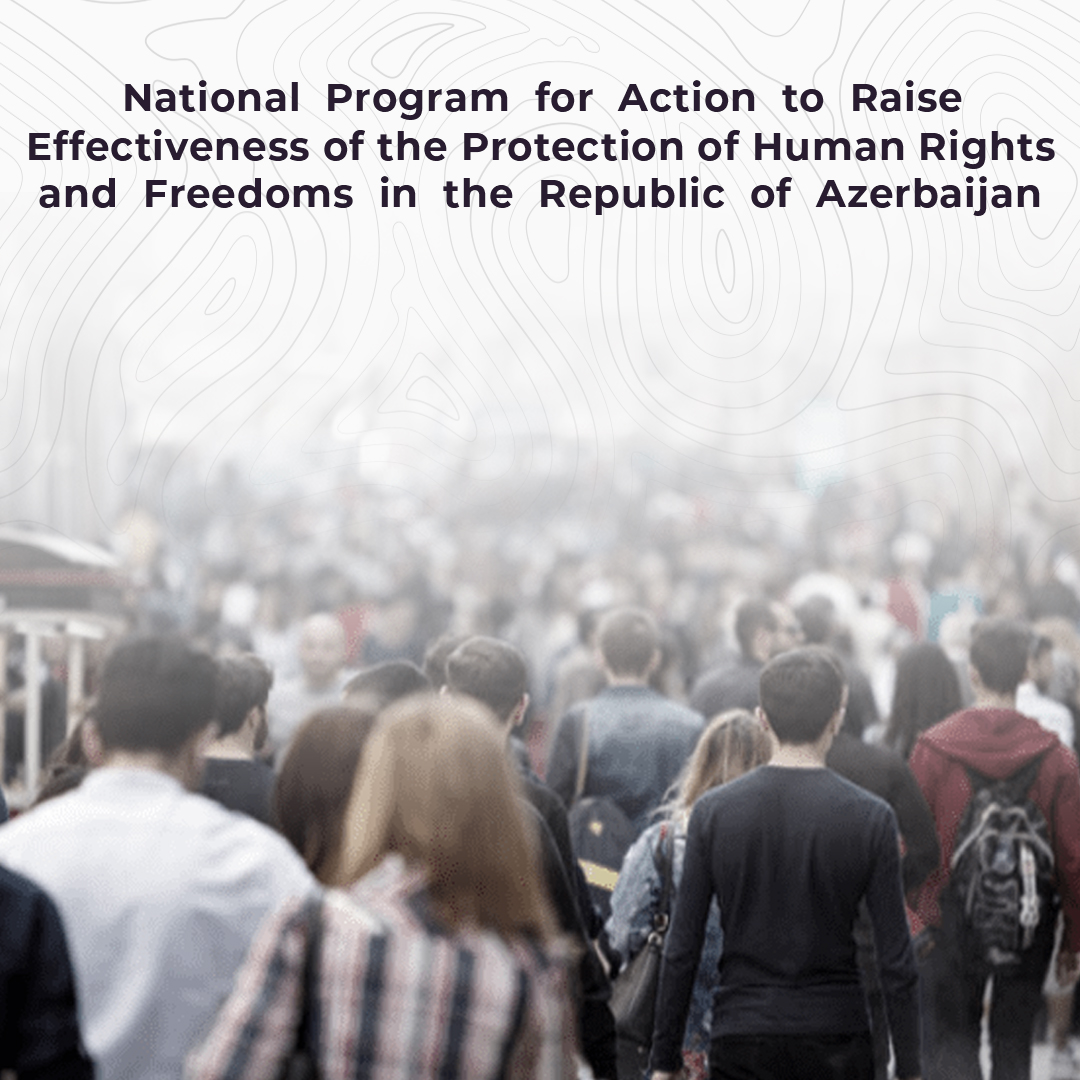
Video Message of the Commissioner for Human Rights (Ombudsman) of the Republic of Azerbaijan Ms. Sabina Aliyeva on the occasion of August 30 - International Day of the Victims of Enforced Disappearances
30-08-2021
432 dəfə oxunub
The main purpose of this day, which has been marked since 2011 in accordance with the UN General Assembly Resolution, is to pay tribute to the memories of thousands of persons who went missing and unknown, persons who died on the battlefield, detained in secret places or secretly executed, whose natural rights as the right to life, to freedom, and other human rights were violated.
It is not possible for objective reasons to give the exact number of people missing during the wars in the world, we can say that the number of such people today is in the hundreds of thousands, perhaps millions.
I would like to note that unfortunately, we also have many missing compatriots because of Armenia’s groundless territorial claims and nearly 30 years of military aggression against Azerbaijan. With no doubt, their families with deep longing and suffering want to get information about their loved ones’ fate. This is their right!
According to the latest information, the State Commission of the Republic of Azerbaijan on Prisoners of War, Hostages and Missing Persons has registered a total of 3,890 missing persons, including 3,171 servicemen and 719 civilians. Of the missing civilians, 71 are minors, including 20 girls, 267 are women, including 154 elderly.
It was established that 872 of 3,890 missing people, including 29 children, 98 women and 112 elderly people, were taken captive and hostage, they did not leave their homes and remained in the occupied territories during the occupation of settlements, villages, and cities.
Despite the statements and testimonies of military servicemen released from Armenian captivity and civilians who witnessed the incidents, as well as other pieces of evidence collected, the Republic of Armenia denies the fact that those individuals were taken hostage and detained.
One of those undeniable facts is related to the 54 Azerbaijanis mentioned in the letters submitted by the International Committee of the Red Cross to the State Commission on Prisoners of War, Hostages and Missing Persons in 1998 and 2001.
Based on those materials, the International Committee of the Red Cross visited 54 Azerbaijani citizens taken hostage by the Armenian military and held in the Republic of Armenia and then occupied Karabakh region of the Republic of Azerbaijan. However, the bodies of 17 of those 54 people, who were priorly confirmed alive, were returned, 33 of them, including 6 women, were reported dead in custody, but their bodies were not returned, and the information about the fate of 4 people was not provided at all.
Also, out of 613 Khojaly residents killed by the Armenian military during the occupation of the Azerbaijani city of Khojaly, 63 were children and 106 were women of different ages. 8 families were annihilated, 487 people became disabled with severe injuries, 76 of them were children.
At present, 196 Khojaly residents are registered as missing, 36 of them were children, including 13 girls, and 65 were women, including 20 elderly.
Testimonies and journalistic interviews of the people released from Armenian captivity during the First Karabakh War confirm that the Armenian armed forces committed various crimes, including war crimes.
A lifelong disability degree was determined for hundreds of Azerbaijanis due to the loss of health as a result of severe injuries received when being subjected to unbearable physical and mental-psychological torture. They still suffer from physical or mental health problems to this day.
The Armenian political and military leadership facilitated the illegal hostage-taking of Azerbaijani civilians not only during the First Karabakh War but also in the years following the ceasefire regime between both sides. This clearly proves the pursuit of the policy of hatred against peaceful Azerbaijanis.
It is clear from the videos spread on various social networks and the confessions of the Armenian military servants that they humiliated the corps of Azerbaijani military servicemen inhumanely with a special feeling of hatred and tried to create tensions by sharing such cases. The humiliation, torture, and other abusive actions of the wounded and captured Azerbaijani military servicemen, as well as the killing of wounded soldiers and mass burials, were reflected in the video and photo footages.
I would like to note that, as the Ombudsman of Azerbaijan, during the 44-day long Second Karabakh War, which started on September 27, 2020, I especially focused on the situation of prisoners of war and their repatriation. As the Ombudsman, at that time I met with prisoners of war of Armenian origin, presented them booklets about their rights in the Armenian language, received them individually, and learned their status. Those prisoners of war, in their turn, have confirmed their satisfaction with the conditions created. Each of them was returned to his country.
As can be seen, in contrast to the attitude of the Armenian side towards the Azerbaijani prisoners of war during the war, steps such as the evacuation of Armenian prisoners of war from the war zone in Azerbaijan, the hospitalization of wounded servicemen for treatment, and the improvement of their health are based on the principle of humanism.
Contrary to the requirements of international agreements to which Armenia is a party, also of the Geneva Conventions, the fate of 7 servicemen missing during the Second Karabakh War, as well as the places of mass burials, are not reported yet. Armenia, in a gross violation of international humanitarian law, does not back down from its act of forced disappearance of civilians and military conscripts.
Failure to provide information to family members on missing persons is a gross violation of that family members’ rights and of the principle of “respect for family life” reflected in international human rights and international humanitarian law. This also includes information about the dead.
According to the IV Geneva Convention for the Protection of Civilian Persons in Time of War, each party to the conflict shall facilitate enquiries made by members of families dispersed owing to the war, with the object of renewing contact with one another and of meeting, if possible.
Pursuant to Protocol I of the Geneva Conventions of 12 August 1949 on the Protection of Victims of War, which is a fundamental principle of international humanitarian and customary law, each Party to the conflict shall search for the persons who have been reported missing by an adverse.
The UN General Assembly Resolution of 6 November 1974 recommended that the parties to the conflict provide mutual information on missing persons. At the same time, in a resolution on missing persons in 2002, the UN Commission on Human Rights reaffirmed that each party to an armed conflict “shall search for the persons who have been reported missing by an adverse party”.
As the Ombudsman of Azerbaijan, always keeping under focus the protection of the rights of prisoners of war, missing persons, and hostages as a result of Armenia's military aggression against our country, I continue the activities to eliminate torture and other cruel, inhuman or degrading treatment or punishment, especially to release them and hand them over to our country. We have addressed appeals to the UN, the Council of Europe, the International Committee of the Red Cross, and other competent international and regional organizations concerning gross violations of international law and humanitarian law in relation to prisoners of war, missing persons and hostages, their torture, humiliating treatment, and other facts.
20 percent of historical lands of the Republic of Azerbaijan had remained under Armenian occupation for nearly 30 years before they were liberated and our country which has more than one million people living as refugees and internally displaced persons for many years still suffers from the bitter consequences of unjust and unjustified military provocations.
Armed forces of Armenia did not hesitate to target Azerbaijani civilian objects and persons, in gross violation of the principle of distinction enshrined in the 1949 Geneva Conventions for the Protection of War Victims, which distinguishes between legitimate and illegitimate targets of attack during hostilities and in no circumstances allow to target civilian persons or objects which are not considered legitimate targets of attack.
The fact that illegal armed groups have not yet been withdrawn by Armenia from the liberated territories of Azerbaijan in contradiction to the requirements of the trilateral statement dated November 10, 2020, but vice versa the deployment of more armed forces and equipment, and various provocations committed by sabotage groups up to present is a threat to lasting peace in the region.
In conclusion, I pay tribute to the memory of those who went missing due to the war and other reasons and call on the world community and international organizations to assist in providing accurate information on the fate of our compatriots captured, missing, and taken hostage in connection with the military aggression of Armenia against Azerbaijan, to return those survived and the remains of the bodies of those who were killed.
You can watch the video here.
- .
-

- The Ombudsman participated in the International Conference on “Artificial Intelligence and Human Rights: Opportunities, Risks and Visions for a Better Future” in Qatar.
-

- The Ombudsman sent letter to UN High Commissioner for Refugees regarding protection of rights of persons deported from Armenia.
-

- A representative of the Ombudsman Office took part in an event organized by the Ministry of Energy.
-

- The Ombudsman’s representatives participated in the Pardon Decree Enforcement Ceremony.
-

- A series of legal awareness events were organized by the Ombudsman's Regional Centers.
-




